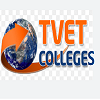Who Funds NSFAS
Who manages NSFAS; Who Funds NSFAS
The NSFAS Act (Act 56 of 1999) established NSFAS, a government organisation under the Department of Higher Education and Training, offers financial assistance to underprivileged students wishing to continue their education at TVET colleges or public universities. Students in South Africa can apply for financial aid through the National Student Financial Aid Scheme (NSFAS), which is primarily funded by the government. Section 14 (1) (b) and (e) of the NSFAS Act No. 56 of 1999 refer to the NSFAS Funds; these funds are made up of (b) donations or contributions and (e) any additional income the NSFAS receives.
READ ALSO; Tvet Colleges PMB 2024
Who Are NSFAS Funding Partners
- DEPARTMENT OF BASIC EDUCATION DBE’S FUNZA LUSHAKA
In keeping with goal 14 of the action plan to 2030, the Funza Lushaka bursary programme aims to find and hire young people from every province in order to boost the number of young educators in the educational system. Because of this, the department aims to recruit a fresh batch of young, driven, and suitably qualified educators into the teaching profession each year through the Funza Lushaka bursary initiative. Thus, in order to be eligible for funding, students under the age of thirty will be the focus of the Funza Lushaka bursary scheme.
- NATIONAL SKILLS FUND (NSF)
The purpose of this programme is to offer bursary funding for academically deserving undergraduate students from low-income families who are enrolling for the first time or continuing their studies in certain fields where skills are in high demand. The funding will be provided in accordance with equity targets identified by the Skills Development Act of 1998 and any future amendments that may be made.
- DEPARTMENT OF EMPLOYMENT AND LABOUR (COID)
The Compensation Fund is asking dependants of COID Persons with Disabilities, unemployed individuals who experienced occupational diseases or injuries and subsequently gained a lifelong disability, and dependents of workers who were fatally injured to apply for the Compensation Fund Bursary opportunity. Additionally, this fund supports general youth participating in COVID-19-related courses at public universities.
- TRUTH AND RECONCILIATION COMMISSION (TRC) – DHET REPARATIONS
The Promotion of National Unity and Reconciliation Act of 1995 was enacted by Parliament in response to regulations issued by the Department of Justice (DoJ) concerning victim assistance. Victims: The DoJ bursary office selects victims who are related to or dependent on victims as defined by the TRC. Changes made in 2017 through a Parliamentary Gazette brought in extra benefits for TRC victims, increasing the appeal of the bursary system.
- DEPARTMENT OF MILITARY VETERANS (DMV)
The primary goal of the Department of Military Veterans (DMV) is to assist veterans of the armed forces and their families in light of their invaluable contributions to South Africa. Through bursary financing for qualifying individuals, DMV aims to offer educational help to financially eligible military veterans and their dependents who are listed on the DMV Database.
- DEPARTMENT OF AGRICULTURE, LAND REFORM AND RURAL DEVELOPMENT (DALRRD
In an effort to address the severe skills shortage in the industry, the DALRRD launched the external bursary programme in 2004. The programme encourages young people to pursue careers in agriculture, forestry, and fisheries. The external bursary policy, which was authorised and endorsed by the Executive Committee (EXCO) in 2003, governs the programme. Comprehensive bursaries will be given by DALRRD to eligible candidates who are pursuing or want to pursue further education in specific fields related to agriculture, forestry, and fisheries.
- THE RURAL EDUCATION ACCESS PROGRAMME (REAP)
A non-profit organisation called REAP was founded in 2000 with the goal of facilitating postsecondary education access for young people from South Africa’s underprivileged rural communities. The collaboration between NSFAS and REAP makes it possible for the programme to fulfil its goal of helping students from working-class and poor families who would not otherwise be able to afford to attend tertiary education attain success in higher education and training.
- SETA
The National Skills Development Strategy (NSDS) created the SETAs as a programme to help those in need of extra training and skills, including youth who are not enrolled in school.
SETAs provide priority to the “missing middle,” a term used to describe students who struggle to find funding on their own but are judged not to be sufficiently impoverished to be eligible for government funding, whereas NSFAS funds the poorest of the poor.
- THE FIBRE PROCESSING AND MANUFACTURING (FP&M) SETA
The government decided to cluster sectors in order to increase value-chain links between linked industries, and on April 1, 2011, the Minister of Higher Education and Training, Science and Innovation, founded the FP&M SETA. This SETA is a DHET organisation.
It is divided into 13 sub-sectors: publishing, pulp and paper, textiles, wood products, forestry, apparel, footwear, leather goods, packaging, printing, and print media. Despite being categorised separately, the sub-sectors work closely together. Over the years, this SETA has decided to work with NSFAS in order to provide funding for eligible students.
READ ALSO; How Many Years Does NSFAS Fund
NSFAS Contact
For general, student and NSFAS Wallet enquiries
For all other queries regarding students:
Tel No.: 08000 67327
Email: info@nsfas.org.za
Physical Address
The Halyard, 4 Christiaan Barnard St, Cape Town City Centre, Cape Town, 8001
visit more on NSFAS funding from the Official website here
